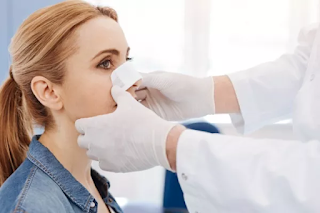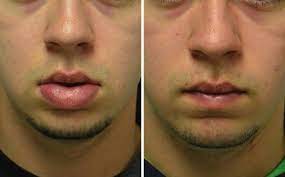Illuminating the Complex Landscape of Skin Whitening in Islamabad: Navigating Cultural, Religious, and Ethical Perspectives
Introduction:
Islamabad, the vibrant capital of Pakistan, is a melting pot of diverse cultures, traditions, and beauty ideals. In recent years, the quest for fairer skin has become a prevalent phenomenon in the city, prompting the popularity of various skin-whitening products and treatments. This blog aims to shed light on the multifaceted nature of skin whitening in Islamabad, exploring the cultural influences, religious perspectives, and ethical considerations associated with this growing trend.
Cultural Influences:
In Islamabad, much like in many other cultures, the concept of beauty is often intertwined with fair skin. Lighter skin tones are sometimes perceived as symbols of purity, sophistication, and societal acceptance. The impact of media, advertising, and societal expectations significantly contributes to the increasing demand for skin-whitening products.
The desire for fair skin is often fueled by historical and cultural factors, where lighter complexions have been traditionally associated with privilege and beauty. The influence of these cultural norms can create a perception that fairer skin is an ideal to strive for, contributing to the popularity of skin-whitening practices in Islamabad.
Religious Perspectives:
Islam, the predominant religion in Islamabad, plays a vital role in shaping attitudes towards beauty and personal appearance. The Quran encourages believers to be grateful for the natural features bestowed upon them and discourages altering the creation of Allah. While personal grooming and hygiene are encouraged, there is a fine line between these practices and altering one's appearance for cosmetic reasons.
Islamic teachings emphasize inner beauty, good character, and virtuous conduct as primary indicators of a person's worth. The pursuit of fairer skin should be approached with caution, keeping in mind the ethical considerations associated with altering one's natural appearance.
Ethical Considerations:
The pursuit of fairer skin in Islamabad raises ethical questions, considering the cultural and religious context of the city. Striking a balance between personal choices and adherence to ethical principles is crucial. Islam encourages individuals to prioritize inner beauty, modesty, and gratitude for the features bestowed by Allah over external appearances.
One ethical concern involves the potential health risks associated with certain skin-whitening products. Some products may contain harmful ingredients like hydroquinone, which can lead to adverse effects with prolonged use. It is essential for individuals in Islamabad to prioritize safety and seek guidance from healthcare professionals before embarking on any skin-whitening journey.
Common Skin-Whitening Practices in Islamabad:
Topical Products: Skin-whitening creams and lotions, often containing ingredients like hydroquinone, kojic acid, and arbutin, are widely available in Islamabad. It is crucial for consumers to be well-informed about the ingredients in these products and their potential side effects.
Natural Remedies: Some individuals in Islamabad prefer natural remedies, such as turmeric, yogurt, and honey, believed to enhance the complexion. While generally considered safer, the effectiveness of these methods varies from person to person.
Dermatological Treatments: The city has witnessed a surge in dermatology clinics offering professional skin-whitening treatments, including chemical peels and laser therapies. Seeking guidance from qualified professionals is crucial to ensuring safe and effective outcomes.
Guidance from Islamic Scholars:
Islamic scholars in Islamabad emphasize the importance of moderation and discourage extreme measures in the pursuit of beauty. They encourage individuals to be content with their natural appearance, highlighting the significance of gratitude for the blessings bestowed by Allah. Seeking guidance from scholars can provide individuals with a spiritual perspective on the ethical considerations surrounding skin whitening.
Community Awareness:
Efforts to raise awareness within the Islamabad community about the potential risks associated with certain skin-whitening practices are essential. Educational initiatives can help individuals make informed choices, prioritizing their overall well-being while respecting cultural and religious values. Promoting a holistic approach to beauty that includes acceptance of one's natural appearance contributes to a healthier mindset within the community.
Conclusion:
In navigating the complex landscape of skin whitening in Islamabad, it is crucial to consider the cultural, religious, and ethical dimensions associated with this trend. Striking a balance between personal choices, societal expectations, and religious principles is key. Fostering a culture that values diversity, self-acceptance, and inner beauty aligns with the teachings of Islam and contributes to a more inclusive and harmonious society in Islamabad. Ultimately, the journey towards beauty should be one of self-love and acceptance within the rich cultural tapestry of Islamabad.




Comments
Post a Comment